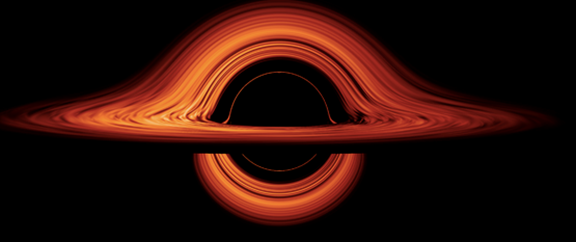A team of astrophysicists suggests that all black holes were created instantly after the Big Bang and account for all dark matter. Researchers from the University of Miami, Yale University, and the European Space Agency believe black holes have existed since the beginning of the universe and that they could be as-of-yet unexplained dark matter.
Dark matter, which is so far unobserved, is thought to be most of the material in the universe and acts as the scaffolding upon which galaxies form and develop. Black holes, located at the centers of most galaxies, have been observed as a point in space where matter is so tightly compacted, they create intense gravity.
Co-authored by Priyamvada Natarajan, professor of astronomy and physics at Yale, and Günther Hasinger, director of science at the European Space Agency (ESA), the research suggests that primordial black holes of all sizes account for all black matter in the universe.
Primordial black holes could be the seeds from which all the supermassive black holes form, including the one at the center of the Milky Way. They also may resolve the excess of infrared radiation, synced with X-ray radiation, detected from distant, dim sources scattered around the universe.
And, best of all, the existence of primordial black holes may be proven—or disproven—soon, courtesy of the Webb telescope scheduled to launch from French Guiana before the end of the year and the ESA-led Laser Interferometer Space Antenna (LISA) mission planned for the 2030s. LISA will pick up gravitational wave signals from early mergers of primordial black holes.

